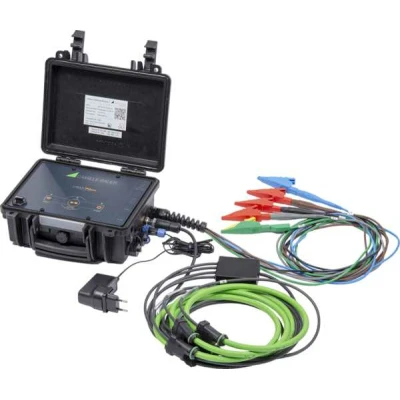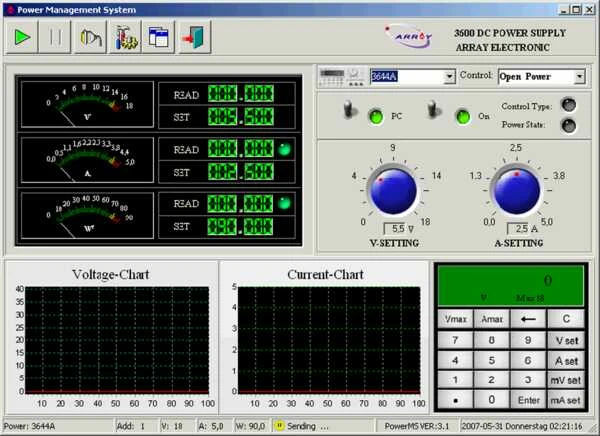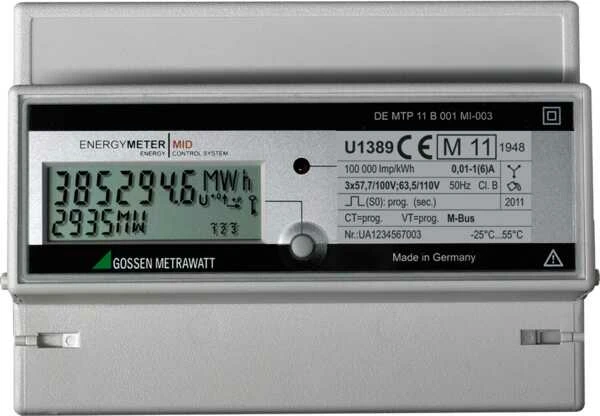LINAX PQ5000-Mobile
Portable, Programmable 3-Phase Energy and Power Disturbance Analyzer
Operationally relevant power supply aspects can be checked with the help of the portable LINAX PQ5000 MOBILE measuring solution. These aspects include power quality and availability, the evaluation of changes or measures for improvement, as well as energy flow analysis.
- Integrated Wi-Fi
- Lockable, water-proof case
- Simple, device-independent initial start-up and configuration via web browser
- No additional software required thanks to integrated power quality reporting function (PQEasy Report)
- PQ5000-MOBILE power quality analyzer with 5 voltage measurement cables and plug-on dolphin clips
- Mains power pack with plug set
- Dongle for Wi-Fi access point
- Carrying pouch
- Instrument manual (English or German) including test report
Please note:
Measurements are performed with the PQ5000 Mobile by means of either Rogowski coils (order number: PQ5000MOB-3) or current clamps (order number: PQ5000MOB-2). It’s not possible to change from one type of measurement to the other.
- Portable power quality, power and energy measuring instrument
- Covered standards: EN 50160, IEC 61000-2-2, IEC 61000-2-4 and IEC 610002-12, as well as GB/T (China) and IEEE 519
- Communication via Ethernet or Wi-Fi access point
- Touch protection: IP 65 (closed housing)
- Measuring category: 600 V CAT III / 300 V CAT IV
- Time synchronization via GPS and NTP • Sampling rate: 18 kHz
- Current sensor technology depending on instrument variant – either Rogowski coils (2000 A, order number: PQ5000MOB-3) or current clamps (10, 100 or 1000 A, (order number: PQ5000MOB-2)
- Acquisition of voltage dips and swells, overvoltage, asymmetry, flicker
Interfaces
- Ethernet
- Wi-Fi access point
Connection types
- Single-phase system
- Split-phase (2-phase system)
- 3 or 4-wire balanced load
- 3-wire unbalanced load with Aron circuit
- 3 or 4-wire unbalanced load
Portable analyzers are the right choice wherever data concerning power quality, power and energy need to be simply and accurately ascertained. The instrument detects changes in the monitored electrical circuit: voltage dips and swells, overvoltage, harmonics and flicker based on internationally recognized industry standards such as EN 50160, IEC 61000-2-2, IEC 61000-2-4 and IEC 610002-12, as well as GB/T (China) and IEEE 519. Ethernet and Wi-Fi interfaces are available for remote use in safety-critical environments, via which the instrument can be operated directly from a web browser at a cell phone, tablet or laptop.
Monitoring options and benefits:
- Statistical evaluation (power quality)
- Disturbance logging (power availability)
- Evaluation of changes / measures for improvement
- Acquirement of load profiles, short-term load peaks and meter readings




